FOUNDERS OF THE LITTLE THEATRE, GATESHEAD
Situated in the Consecrated/West Section of Jesmond Old Cemetery
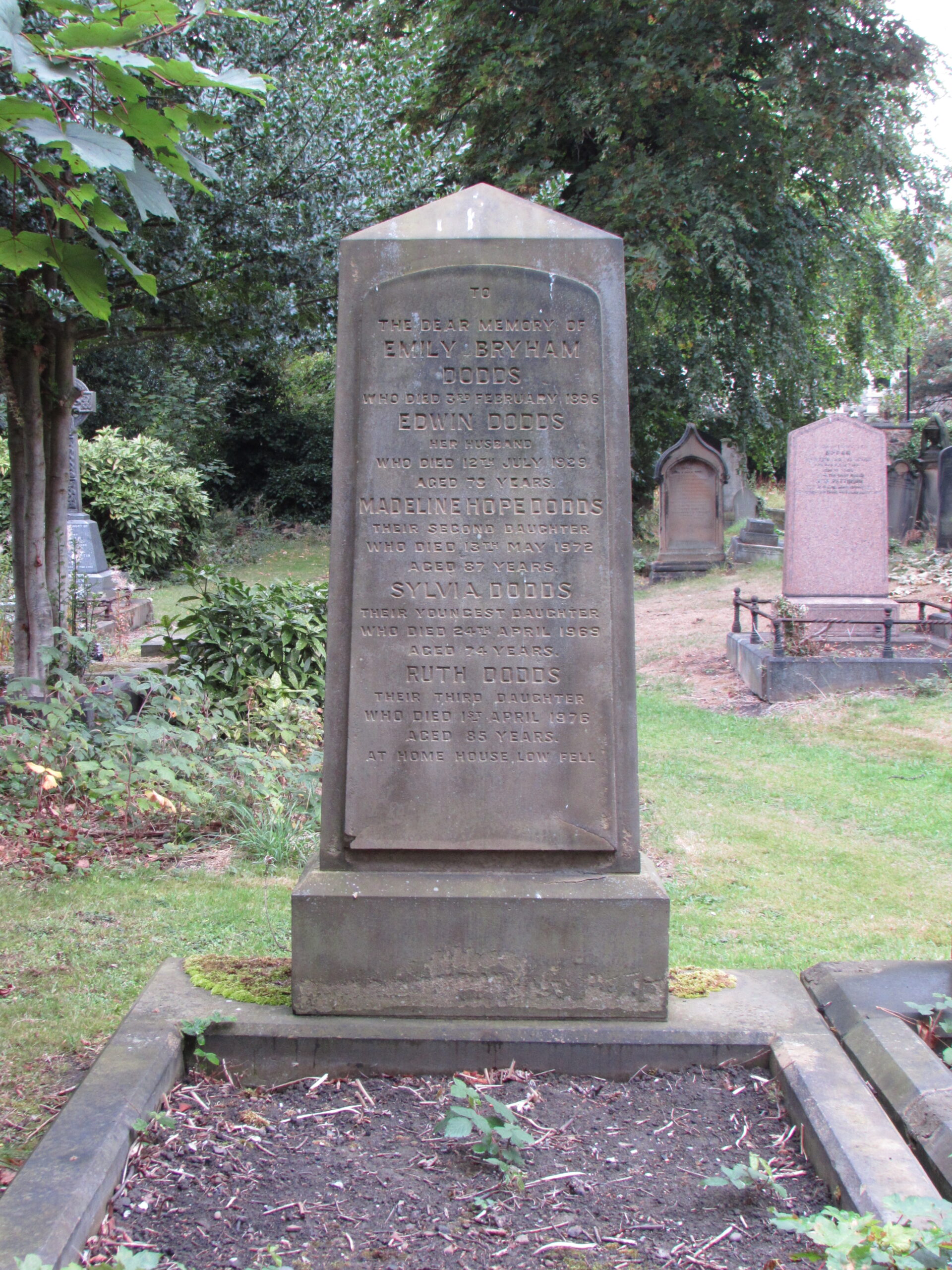
Edwin Dodds (1852 – 1929), a bookbinder and historian married Emily Bryham Mawson (1855 – 1896), whose father was John Mawson, Chemist and Sheriff of Newcastle – he was killed in the explosion on the Town Moor in 1867. Incidentally, John Mawson’s monument is situated adjacent to the Dodd’s monument.
The Dodds family lived at ‘Home House’, Kells Lane in Low Fell, Gateshead.
Edwin and Emily had four daughters, Mary Muriel (1881 – 1966), Madeleine Hope (1885 – 1972), Ruth (1890 – 1976) and Sylvia (1894 – 1969), and one son, Brian Mawson (1887 – 1958).
Madeleine Hope, Ruth and Sylvia never married and remained in the family home.
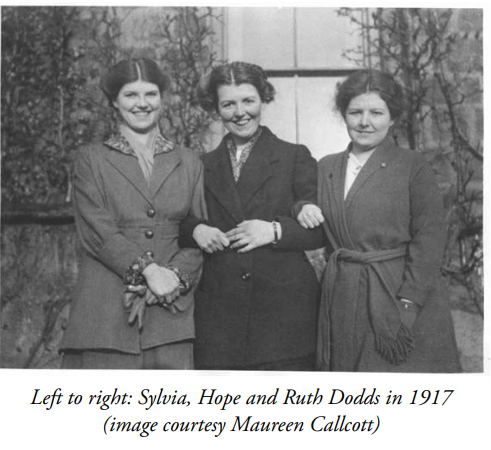
Muriel married Hugh Rounthwaite, an engineer from Gateshead, in 1913. They had a son, Robert, who died at the age of 21. Brian married Margaret Helen Neilson in 1925. He spent a number of years in the Royal Naval Volunteer Reserve, attaining the rank of Temporary Sub-Lieutenant.
Madeleine Hope, more commonly known as Hope, studied at Gateshead High School for Girls before attending Newnham College, Cambridge in 1904, where she was awarded a Second Class Honours in History Tripos in 1906. Unbelievably, this was in the days when women could study but not be awarded a degree!! Hope subsequently began writing for the Victoria History of the Counties of England in 1907, contributing towards the history of Durham. As a side note, the Victoria History of the Counties of England is an English history project which began in 1899 with the aim of creating an encyclopaedic history of each of the historic counties of England and was dedicated to Queen Victoria. In 1909, Hope’s College thesis on the Bishops of Durham’s boroughs gained her the Creighton Memorial prize. From 1908, Hope was involved with the Newcastle Society of Antiquaries and, in 1947, was made a Honorary Member of the Society.
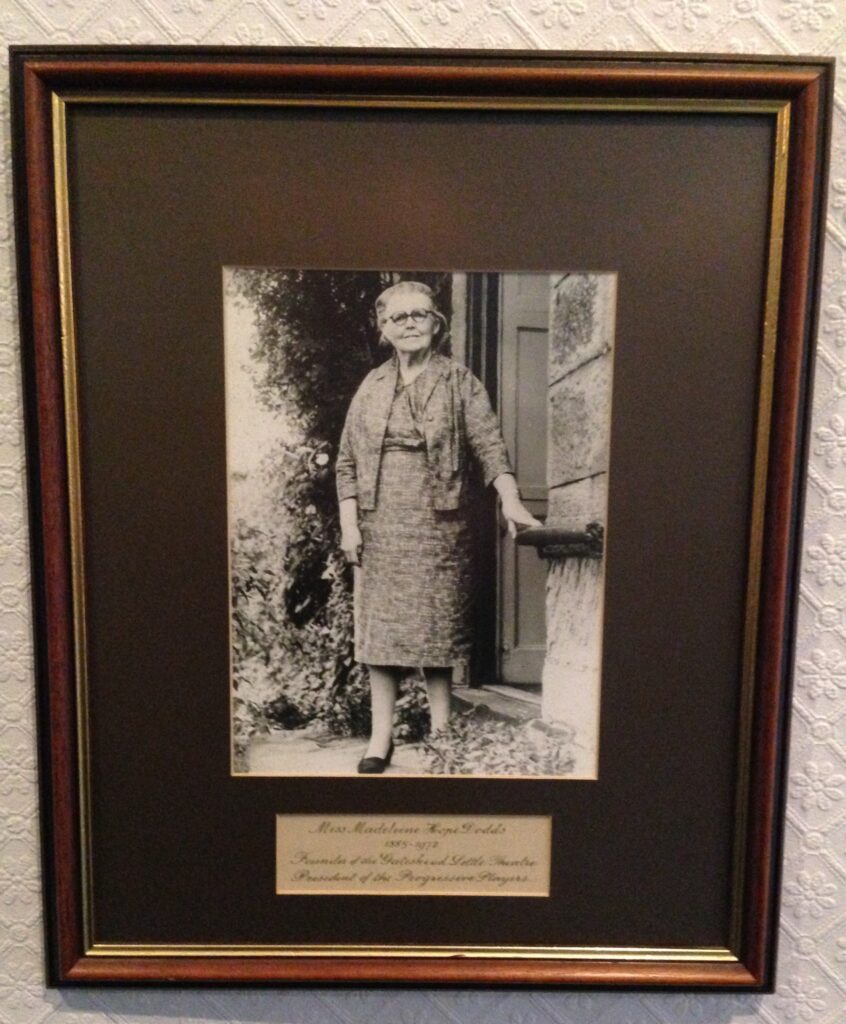
Madeleine Hope Dodds
In 1915, Hope and her sister, Ruth, wrote The Pilgrimage of Grace, 1536 – 1537 and The Exeter Conspiracy, 1538, which was published by Cambridge University Press. Their work is still recognised today, with the publication being viewed as the principle book on the subject. Hope became a Quaker and attended the Newcastle meeting of the Society of Friends. She was a pacifist and a Socialist.
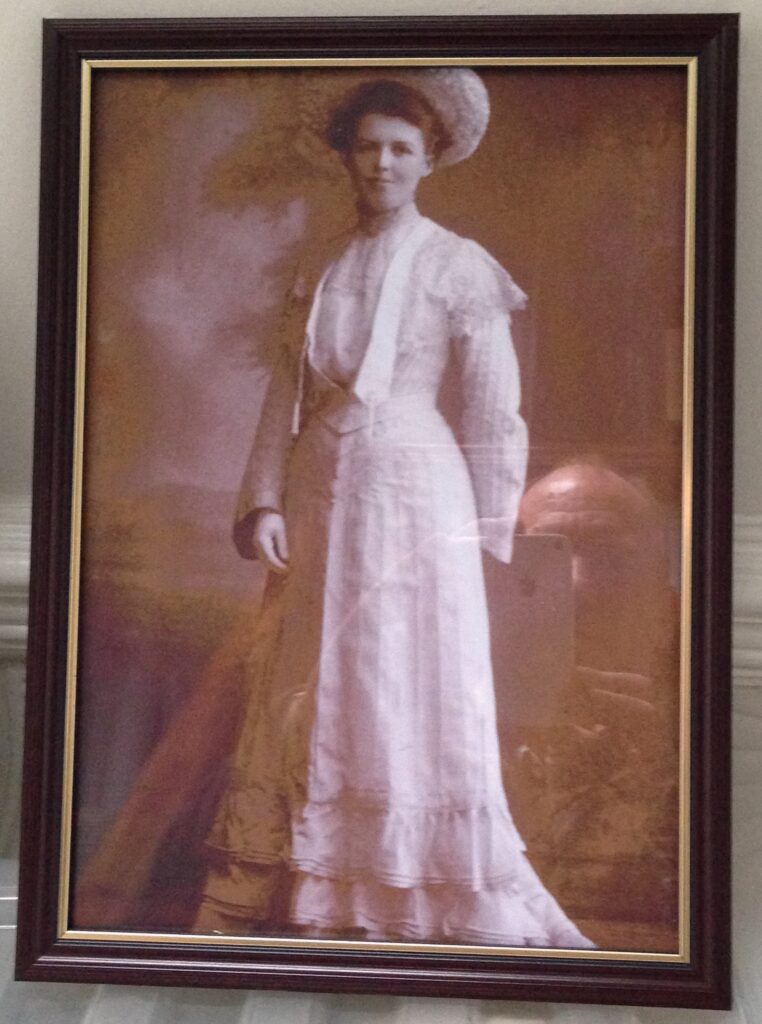
Hope in 1903
As well Ruth as working in the family’s printing business on the Quayside, Ruth developed a growing reputation as a writer and playwright – she was an active member of the Progressive Players and produced plays and made dramatic adaptations of Jane Austen’s ‘Emma’ and Charles Dicken’s ‘Great Expectations’. Ruth also found time to become active in local politics; she joined the Labour Party after the First World War and was elected to Gateshead Council in 1929. A great example of how Ruth combined her two main interests in writing and politics, can be found in her seminal piece of work, ‘The Pitman’s Pay’, in which one of the main characters, Thomas Hepburn, fought for shorter working days and better conditions for miners. It proved to be very popular and toured for many months.
In 1939, being a pacifist like her sister Hope, she resigned from the Labour Party in protest at its support for war. Although she later rejoined the Labour Party, she did not become actively involved in local politics again. In 1965, Ruth, at the age of 75, was made the first female ‘Freeman’ of the Borough of Gateshead.
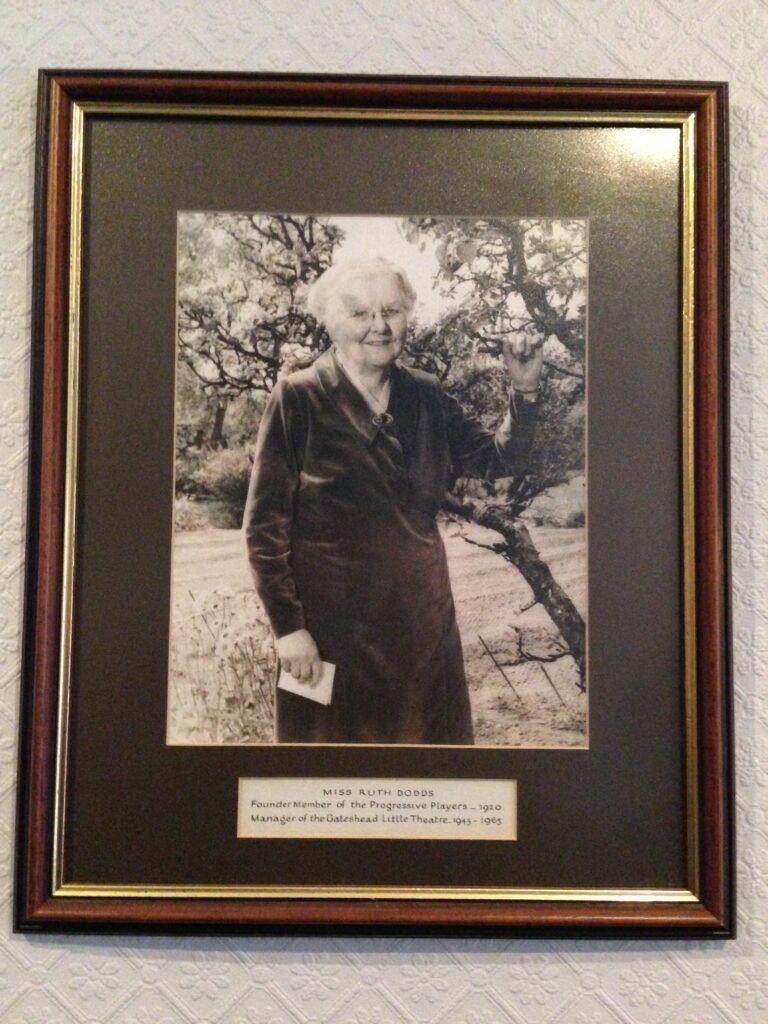
Ruth Dodds

A plaque for Ruth on the Quayside
Sylvia was an expert seamstress who made many of the theatre costumes and, not surprisingly. Sylvia was also in charge of wardrobe which, when it was moved from Westfield Hall, was established on the ground floor of No 3. It has grown so much, it is now housed in No 4, which was purchased in the 1980s. It has always been a source of income through hiring out costumes to other groups, and still is to this day. A notebook with reports of Sylvia’s wardrobe contain notes written in Swedish which would indicate she was learning the language.
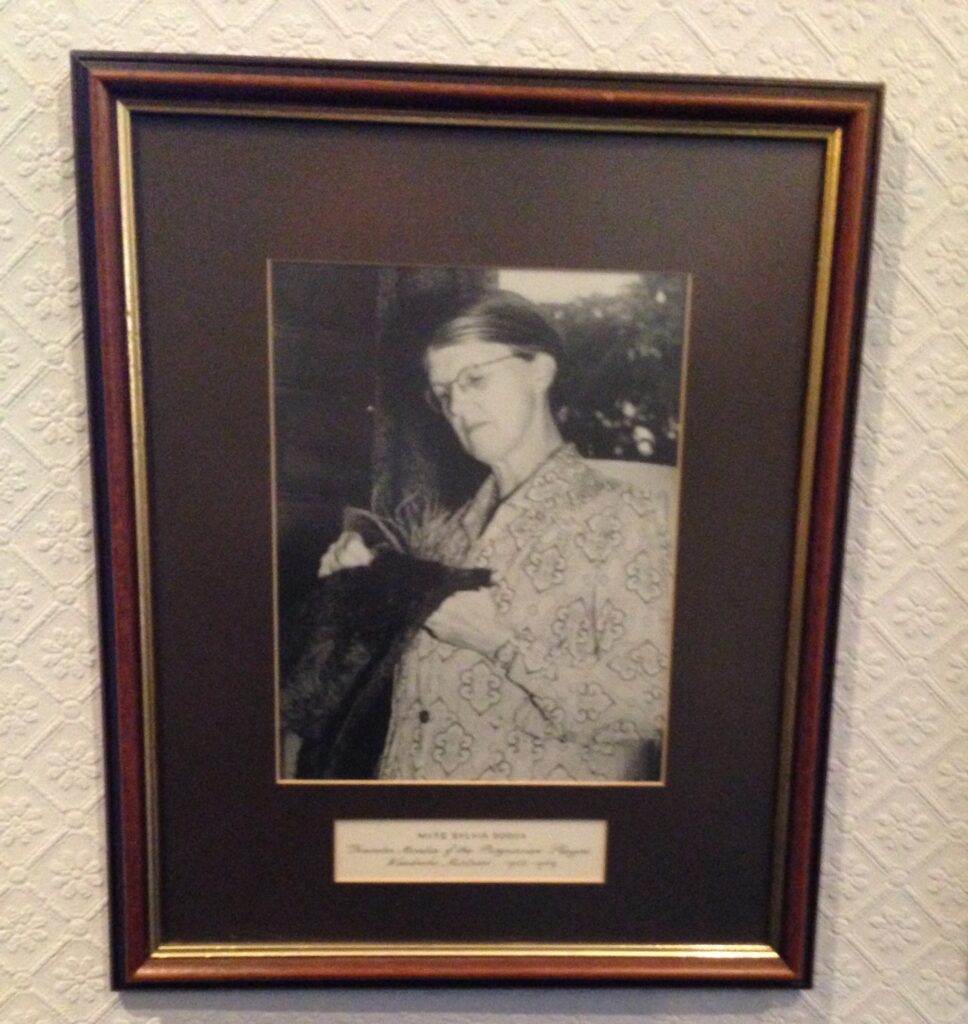
Sylvia Dodds
Their mother, Emily, died when the children were very young and so her sisters helped raise them; it was the Aunts who gave the sisters the love of the theatre. The Progressive Players, of which Hope, Ruth and Sylvia were founder members, was established in 1920. The roots of the Progressives were in the Gateshead branch of the Labour Party, but the modern group is now non-political. Their plays were performed in local village halls as well as in Westfield Hall in Gateshead. When they were given notice to quit the hall in 1939, Hope, Ruth and Sylvia stepped in. They had been looking for a site to build a theatre on and subsequently secured a plot on Saltwell Road, in addition to the house at number 3, which they would eventually use as a dressing room and a store for their production’s costumes. Indeed when it came to the time when they were to move the costumes to the premises, the removal men were under the impression they would be collecting a wardrobe, not a whole theatrical wardrobe!
Hope was the named project manager for the build and the plans were drawn up in her name and are on the Deeds. These Deeds reveal that, in 1939, the plot of land cost £400 and the house at No 3 was £450. Once the company was established, the theatre and house was sold to the company. Another interesting fact was that the owner of a house across the back lane objected on the grounds that they would lose light! They were paid £60 in compensation and the work continued.
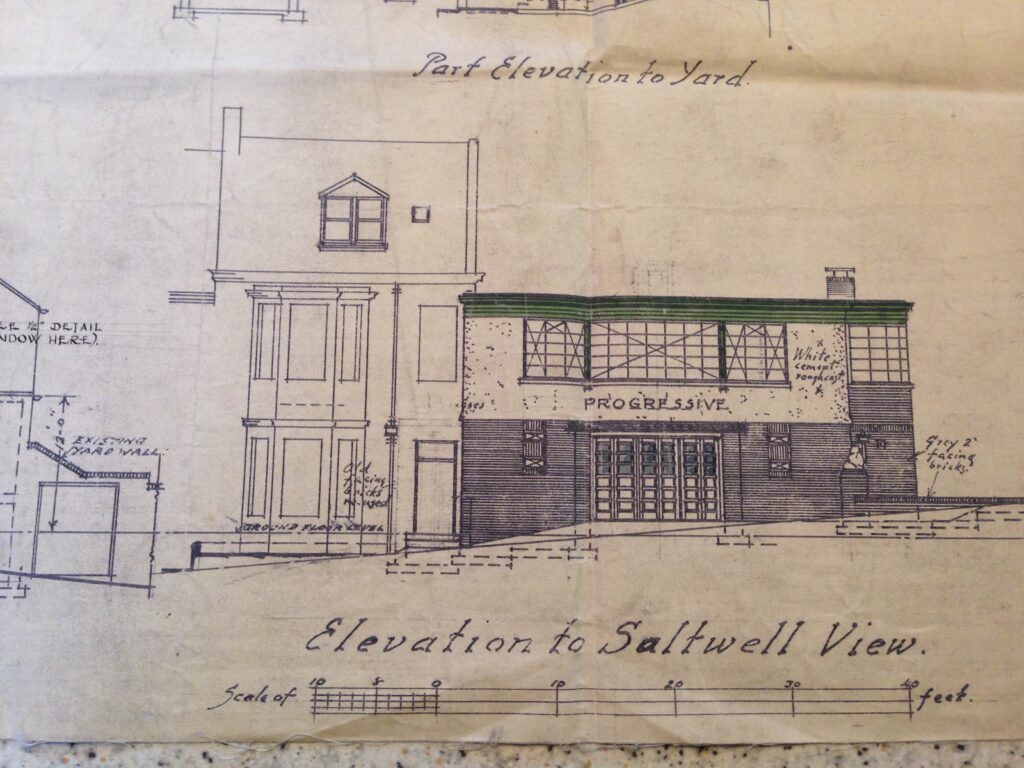
An image of part of the original plans
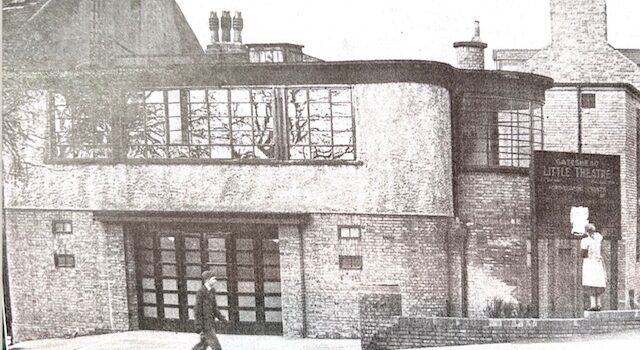
A view of the Little Theatre from a few years ago
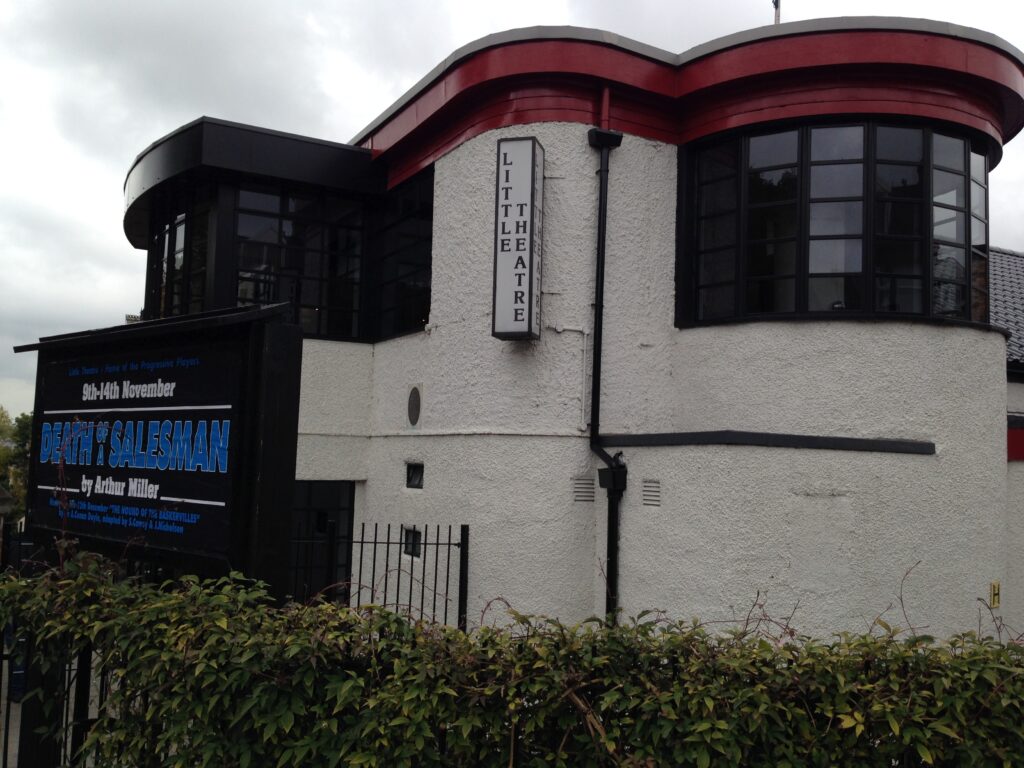
A recent image of The Little Theatre
However, no sooner had building work on the theatre commenced, war was declared; the RAF subsequently requisitioned the house and erected a barrage balloon on the empty site. They did not move out until 1941, when building work was able to resume. The Gateshead Little Theatre, the name being chosen by Hope, opened on October 13th 1943, with ‘A Midsummer Night’s Dream’.
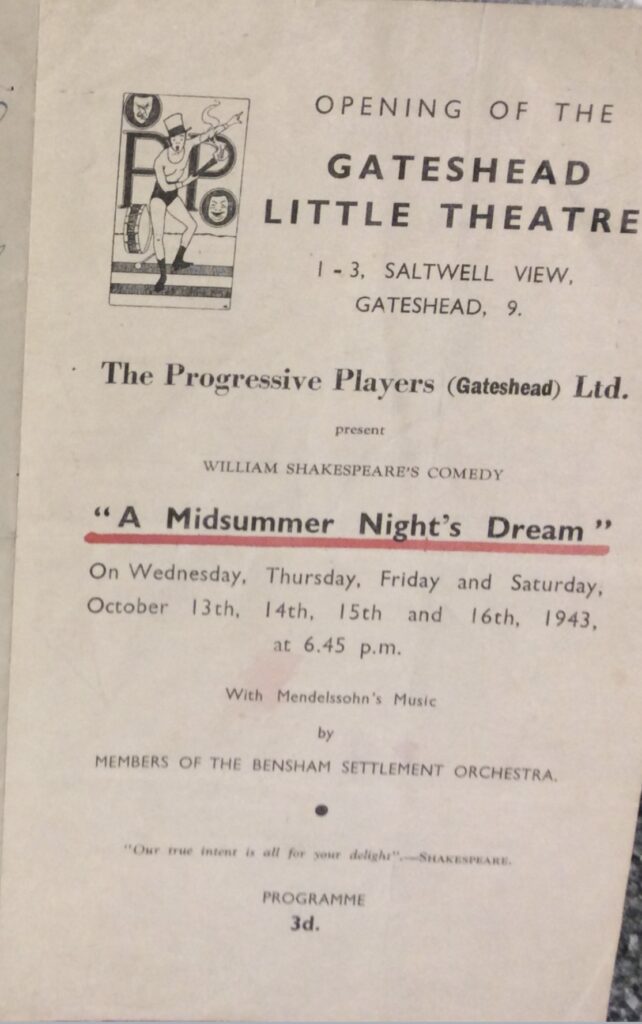
The programme from the opening night
In 1959 they produced a play based on the ‘Diary of Anne Frank’ and a few years later they had a letter from Otto Frank, asking for any reviews or a programme that could be displayed in the Anne Frank house. They also have letters from Thora Hird and J B Priestly. A treasure trove to have!
The three sisters were extremely modest, they never revealed how much they paid for the land and house, and it is known that, when audience figures fell, they paid the bills. Three extraordinary women who left behind a great legacy.
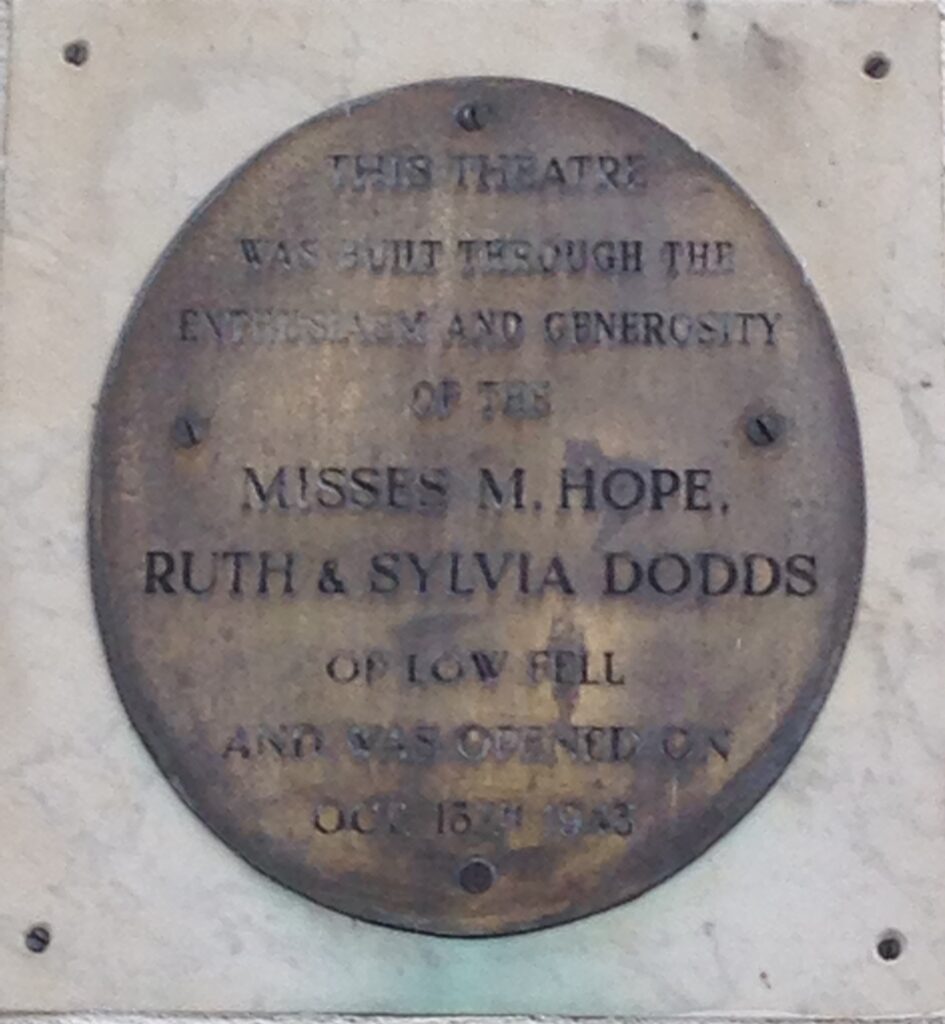
This year marks the 80th Anniversary of the opening of the theatre, which is believed to be the only one opened during the war and remains the only theatre in Gateshead.
With thanks to Judith Carruthers, who is archivist at the Little Theatre, and much more besides, who kindly shared information and photographs and gave permission for them to be put on our website.
A visit to the theatre to see a production is definitely on our ‘to do’ list. To see what’s on, click here